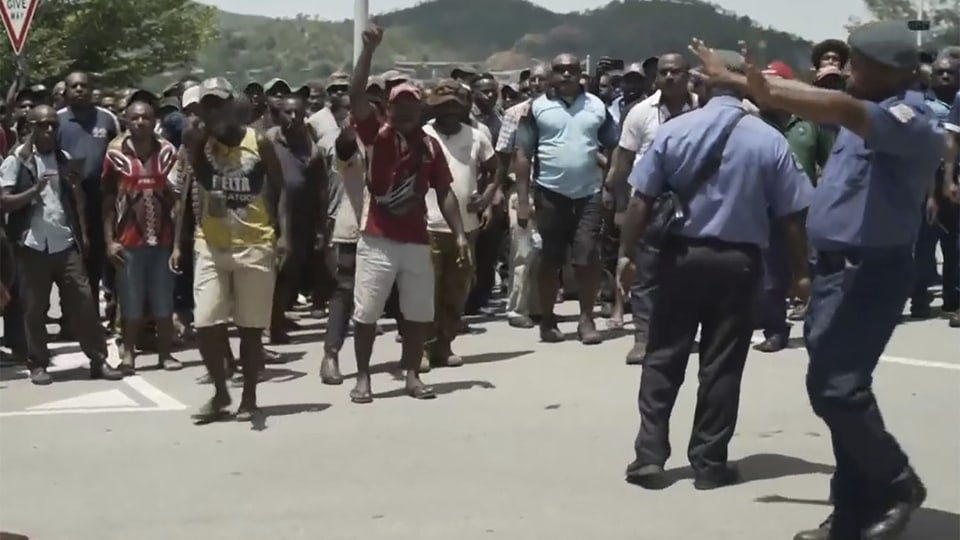Contents
There was serious unrest in Papua New Guinea. A social time bomb has been ticking in the Pacific nation for a long time.
Thousands of looters run through the streets of Port Moresby, some with televisions under their arms, others armed with makeshift weapons. “All the shops are empty,” a man says to the camera on Australian television.
“Anarchy in the Pacific,” report journalists. It all started on Wednesday as a result of a computer problem, according to the government of Papua New Guinea. Police officers had – apparently by mistake – only been paid half of their already meager wages. They marched towards government buildings to protest.
Prime Minister speaks out
The demonstration quickly developed into a crowd. Thousands of mostly young men stormed commercial buildings and looted shops. 16 people died.
Prime Minister James Marape spoke out on Thursday: lack of discipline in the police will not be tolerated. Police officers could have “their moment in the sun,” said the head of government. But that won’t last long. Marape declared a state of emergency and called on the military to ensure peace and order.
Varied problems
The situation now seems to have calmed down somewhat. A few fires are still smoldering, shop owners are fearfully venturing back, inspecting the rubble of their existence and starting to clean up. But no one believes that this will solve the problems that have plagued Papua New Guinea for decades.
Governing the mountainous and in parts barely accessible country is anything but easy. Over 1,000 different ethnic groups and languages make the nation, which has only been independent of former colonial powers since 1975, one of the most ethnically complex in the world.
At the same time, skyrocketing costs of living, political instability and high unemployment make everyday life difficult. Health care for most of the approximately ten million residents is inadequate.
HIV infections, tuberculosis and other preventable diseases are rampant. Illiteracy is more the norm than the exception. Corruption and nepotism are widespread. Although rich in minerals and other raw materials, many people live in poverty.
Gloomy prospects
Nowhere are the consequences more evident than in Port Moresby, where hundreds of young men arrive every day from the most remote areas of the country in a mostly hopeless search for work.
Almost all of them end up on the street. Because there is a lack of living space – a social time bomb. The crime rate is extremely high. Port Moresby is considered one of the most dangerous cities in the world.

Legend:
There has been serious unrest in the capital Port Moresby. At least 16 people were killed there and in the city of Lae, houses went up in flames and there was looting.
Keystone/AP Australian Broadcasting Corp.
No one wants to say whether and for how long Port Moresby will calm down. Prime Minister Marape has fired a few of his ministers and the police chief.
The opposition is calling for Marape to resign. However, it is doubtful whether such an approach would bring about a fundamental improvement in the situation. For many of its young residents, Papua New Guinea is a country without hope.
